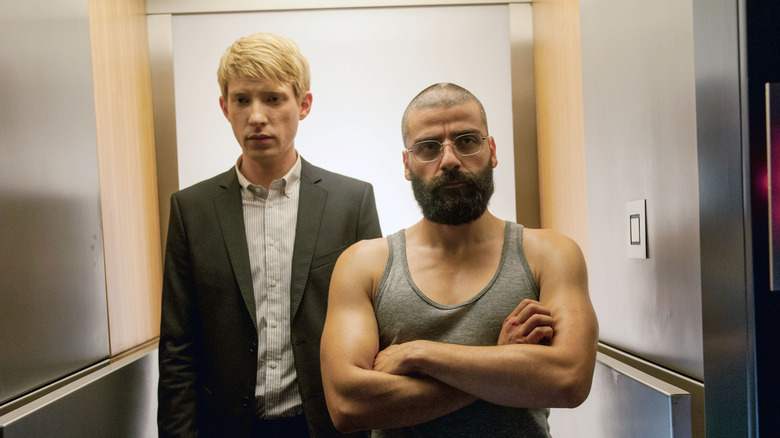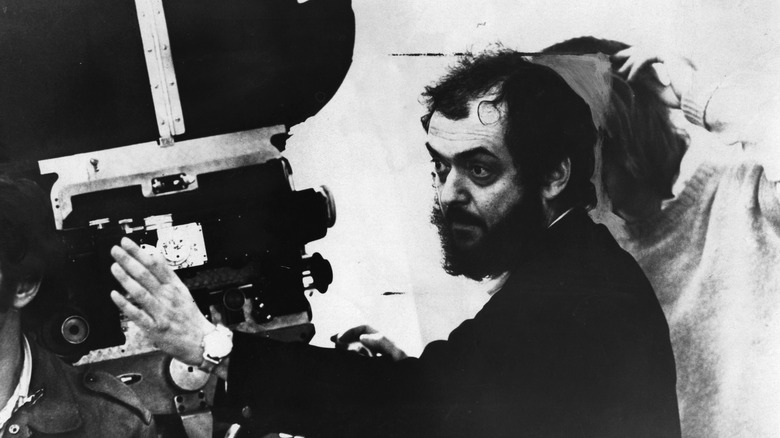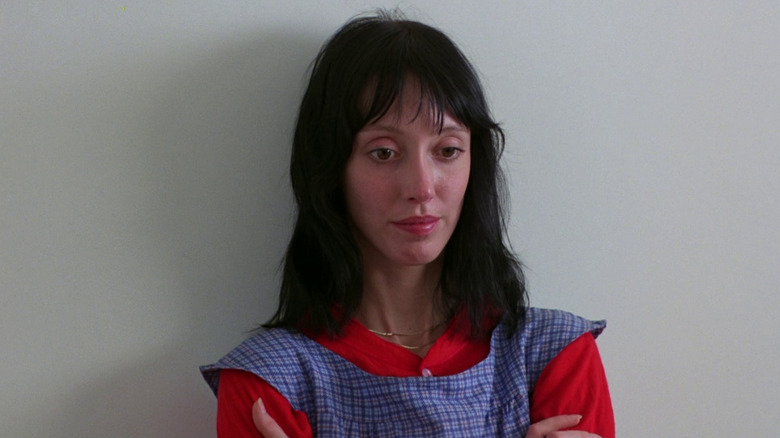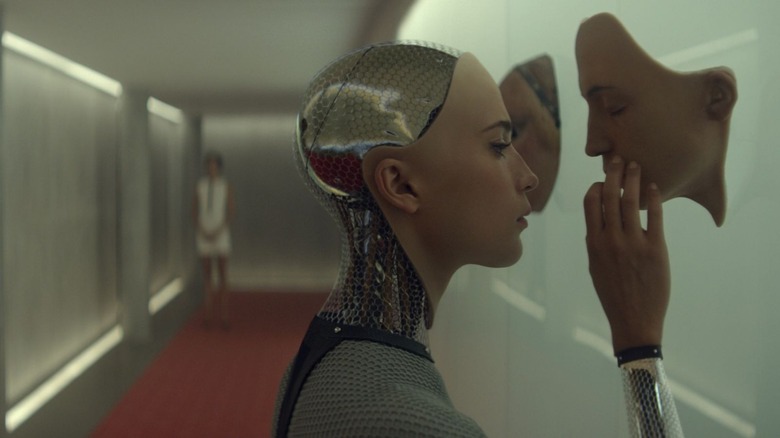This Legendary Director Served As Inspiration For Oscar Isaac's Ex Machina Character
Although the question of what it means for a robot to achieve true personhood isn't exactly a new question in science fiction, writer/director Alex Garland's "Ex Machina" handled it in a way that felt fresh and exciting. The unsettling, claustrophobic film followed computer programmer Caleb (Domhnall Gleeson) as he's hired to determine if Nathan (Oscar Isaac) has built a truly sentient humanoid A.I. As the movie continues, Caleb starts to increasingly sympathize with the robot, Ava (Alicia Vikander), and decides to help her escape, which backfires horribly.
As much as Vikander's nuanced, mysterious performance as Ava steals the show, it's the Nathan character that glues the movie together. He's deeply intelligent and passionate about his work, but he's also manipulative, creepy, has a bit of a God complex, and may have a few screws loose from his months of isolation from the rest of society. Although there is no clear-cut villain, his intimidating nature and the often cruel way he treats both Ava and Caleb make him feel like the closest thing to a villain the movie has.
When explaining how he came up with the look for Nathan, with the shaved head and the beard, Isaac explained to Moviefone that he was emulating one of the most famous directors in history. "To me, it gave a little bit of that Kubrick look, although he had the long hair in his later years," he said. "He had the bald head and the glasses and those big owl eyes."
Inspired by Kubrick
It wasn't just the aesthetic of Kubrick that Isaac took inspiration from. "I listened to some of his speech patterns, particularly when he was younger," Isaac continued. When asked why he was basing so much of his performance on Kubrick, he elaborated:
"For me, I just liked the idea of someone who was mysterious and powerful and incredibly smart and who I think is a genius. That's where I started — who do I think is a genius?"
Like Kubrick, Nathan in "Ex Machina" is brilliant at what he does. Nathan develops the world's most impressive and complex artificial intelligence so far, whereas Kubrick created some of the most widely celebrated films in history. His influence on the character feels fitting considering how much the movie feels inspired by Kubrick's work. In fact, Alex Garland even named "2001: A Space Odyssey" as one of the four sci-fi films that influenced him the most, telling IGN:
"'2001' just shows you the scale of the ideas you can get into in sci-fi if you want to. It has two massive things in it: an alien first encounter and probably the best, most involved and intelligent depiction of A.I. that's ever been in a film or any kind of narrative."
Kubrick's treatment of women
Also like Kubrick, Nathan's accomplishments are undermined by the way he treats the people around him. In order to get the best possible results from Caleb, Nathan spends the first two-thirds of the movie emotionally manipulating him just as much as Ava does. It calls to mind the stories of the way Stanley Kubrick treated Shelley Duvall on the set of "The Shining," emotionally abusing the actress to the point where her hair was falling out.
Although the point of Kubrick's treatment was allegedly to get the best possible performance out of Duvall, plenty of other horror directors have managed to get good performances out of their actresses without torturing them. The claim falls apart further when you remember that he never treated actors like Jack Nicholson or Danny Lloyd that way while making the same movie. As one critic put it, "Kubrick trusts [Nicholson] to play evil without being evil, but he didn't trust Duvall to play terrified without being terrified."
Ex Machina's catharsis
It feels like a smart choice to have a Kubrick-inspired antagonist in "Ex Machina," considering how interested the movie seems to be in gender dynamics. As many film critics have pointed out, male-coded A.I. in movies tend to betray their human masters (like HAL in "2001" or Auto from "Wall-E"), whereas female A.I. tend to comfortably serve humans without any real fuss.
Both Caleb and Nathan come to think they understand Ava and are capable of controlling and predicting what she's going to do. Nathan's treatment is more straight-forwardly controlling and egotistical, whereas Caleb is motivated by a desire to be her savior and protector. Both of them ultimately fail to fully understand where Ava stands on the bridge between human and A.I., and that's exactly what leads to her outsmarting them in the end.
For those still bitter about the treatment of Duvall on the set of "The Shining," or people who just don't like Kubrick's work in general, there's some catharsis to be found here in the tale of how a Kubrick-based character has the tables turned on him in the end. Whereas Kubrick's treatment of Duvall went without consequences (let alone any kind of apology from the man himself), Nathan's mistreatment and manipulation of both Ava and Caleb blows up in his face hard. As Isaac put it, "When the tables do finally turn, it's really rewarding."



